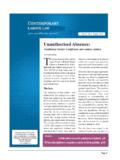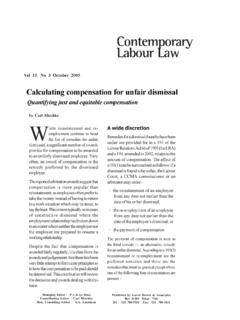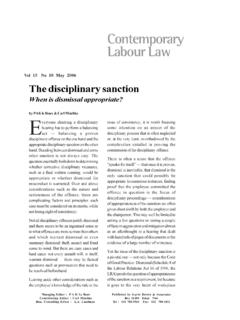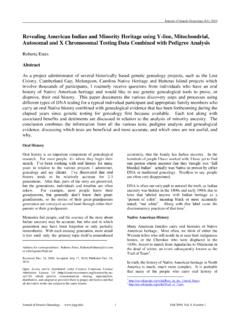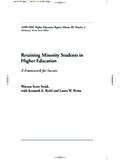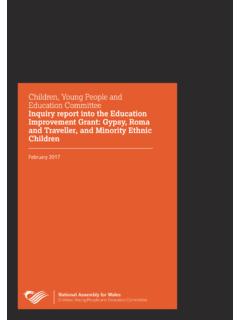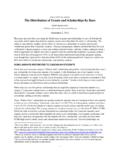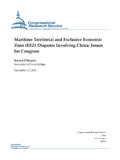Transcription of Contemporary Labour Law Vol. 23 No. 7 February …
1 Page 64 Contemporary Labour Law Vol. 23 No. 7 February 2014 D oes the Labour Relations Act, 66 of 1995 (LRA) ade-quately regulate the posi-tion where an employer is faced with the problem of two competing unions seeking organisational rights? This question was highlighted in two re-cent decisions of the Labour Court. Both decisions deal with the situa-tion where the employer has already granted organisational rights to an existing union and a new union now seeks to obtain similar rights. These decisions will be discussed in this contribution. To understand the implications of these decisions a brief overview of the relevant provisions of the LRA is necessary. The LRA provisions These can be summarised as follows Section 19 provides that a union that is party to a bargaining coun-cil is entitled to require an em-ployer that falls within the juris-diction of the bargaining council to deduct union membership dues from the salaries of members of that union and to pay these dues over to the union.
2 Its officials are also entitled to access to the premises of an employer in order to recruit members, to communi-cate with members, or otherwise to serve the interests of its mem-bers if the employer s workplace falls within the jurisdiction of the bargaining council. These rights accrue automatically once the union becomes party to the council; they are not dependent on the union meeting any repre-sentivity requirement within any workplace. In terms of s20, organisational rights can be granted and regu-lated in a collective agreement. Once again, no representivity re-quirements need be met before an employer and a trade union are permitted to enter into such an agreement. Linked to this is the fact that, in terms of s 65(2)(a) of the LRA, trade unions may em-bark on a protected strike in order to force an employer to enter into such an agreement.
3 It is possible that a union with relatively low levels of representivity which Organisational rights for minority unions Democratic rights and orderly collective bargaining Managing Editor : le Roux Hon. Consulting Editor: Landman Published by Box 31380 Tokai 7966 Tel: +27 21 788 5560 ISSN-1995-218X e-mail: Volume 23 No. 7 February 2014 by Le Roux Contemporary Labour Law Vol. 23 No. 7 February 2014 Page 65 would not be entitled to claim organisa-tional rights in terms of s 21 (see below) could still have sufficient power within the workplace to force an employer to grant these rights through strike action. If an employer refuses to grant one or more organisational rights, and a union does not want, or is unable, to exercise the strike option, the union may utilise the process set out in s 21 of the LRA.
4 This involves referring a dispute to the CCMA and, if the dispute remains unresolved af-ter conciliation, a CCMA commissioner issuing a binding arbitration award refus-ing or granting all or some of these rights . However, in order to qualify for these rights the union (or two or more un-ions acting jointly) must meet certain rep-resentivity requirements within the em-ployer s workplace. If the union seeks the right to have trade union representatives, shop stewards, recognised, or seeks to require the em-ployer to disclose information, the union must represent the majority of the em-ployees in the employer s workplace. No fixed representiviity requirements are set for the granting of the other organisational rights the union must simply be sufficiently representative . What level of membership will be regarded as being representative is determined on a case-by-case basis by CCMA commissioners tak-ing into account certain guidelines pro-vided in the LRA itself.
5 However, the discretion of the CCMA commissioners to determine representivity is limited in one important and currently controversial respect. Section 18 of the LRA permits an employer and a trade union whose members constitute a major-ity in the employer s workplace to enter into a collective agreement which sets thresholds of representivity for the acqui-sition of the organisational rights that do not require majority representivity. These are usually referred to as threshold agree-ments . POPCRU v Ledwaba NO Others (Unreported JR 636/2012 5/9/2014) I n this case the Police and Prisons Civil Rights Union (POPCRU) sought to review and set aside a decision of a CCMA commis-sioner in terms of which another union, re-ferred to in the judgment as SACOSWU, was granted certain organisational rights. At the relevant time POPCRU had as its members a majority of the employees em-ployed in the Department of Correctional Services (the Department) and had been rec-ognised by the Department.
6 SACOSWU was a small union which had some 1479 members out of a total workforce of some 40 000 employees. The Department, as employer, is party to the collective bargaining structures that apply to the Public Sector. It appears that one of the these structures is the Departmental Bargain-ing Council (DBC), which deals with issues specific to the Department and its employ-ees. The Department, POPCRU and one other union are represented on the DBC. The DBC has entered into various collective agree-ments. One of these sets certain thresholds of representivity for the admission of trade un-ions to the DBC. Another regulates the grant-ing of organisational rights and provides, in-ter alia, that a union will only be entitled to have trade union dues deducted from mem-bers salaries if it is a member of the DBC. During the course of 2009 SACOSWU ap-proached the Department and requested that it be granted organisational rights.
7 After an initial refusal and various interventions, the Department granted SACOSWU the right of access to its premises and the right to have trade union dues deducted from its members salaries despite SACOSWU not being a member of the DBC and not enjoying the de-gree of representivity set by the DBC. This was reflected in a collective agreement en-tered into between the parties. POPCRU challenged the validity of this col-lective agreement. It did so on the basis that it contravened the collective agreements en- Page 66 Contemporary Labour Law Vol. 23 No. 7 February 2014 tered into within the DBC. The Department argued that the agreement was valid because there was nothing in law preventing the De-partment and SACOSWU from entering into such an agreement, provided that it did not prevent POPCRU from exercising its rights.
8 SACOSWU argued that the agreement that it had entered into with the Department was one as envisaged in s 20 of the LRA. This dispute was referred to arbitration. The arbitrator found that the agreement was bind-ing. In coming to this decision the arbitrator relied on the decision of the Constitutional Court in National Union of Metalworkers of South Africa & Others v Bader Bop (Pty) Ltd & Another (2003) 24 ILJ 305 (CC). The arbitrator found that this decision was authority for the view that the LRA should not be interpreted in such a manner as to preclude minority unions from obtaining organisational rights through collective bar-gaining and that the agreement reached was one that was contemplated in s 20 of the LRA. Furthermore, denying SACOSWU the right to enter into such a collective agreement would infringe s 23(5) of the Constitution, which provides for the right to engage in col-lective bargaining.
9 Collective bargaining and strike action I t was this reasoning that was challenged on review in the Labour Court. Central to the Court s decision was its analysis of the relationship between collective bargaining, collective agreements as the outcome of the collective bargaining process and organisa-tional rights. The Court accepted the overrid-ing importance of collective bargaining and collective agreements. [24] Organisational rights are not an end in itself but a means to an end. It is part and parcel of the process of collective bargaining. Similarly, the right to strike is not an end in itself but a means to an end also as part and parcel of the process of collective bargaining. There is a logical se-quence to the collective bargaining proc-ess, of which organisational rights, collec-tive agreements and ultimately the right to strike plays its own part.
10 At the start of a collective bargaining process, it is the or-ganisational rights that enable the trade union to have a proper platform from which to engage the employer in collective bargaining. In the collective bargaining process itself, the objective is then to con-clude a collective agreement and if con-cluded, these kinds of agreements are given special status and priority. If a collective agreement cannot be concluded, then the right to strike at the other end of the collec-tive bargaining process spectrum is the sharp end of the spear to seek to compel the employer to conclude the collective agreement sought. All of these issues to-gether form the makeup of the process of collective bargaining, as a whole. In support of the importance of collective agreements, the Court pointed out that a col-lective agreement can regulate or even pre-clude the right to strike, can amend certain basic conditions of employment found in the Basic Conditions of Employment Act, 75 of 1997, can contract out of the dispute resolu-tion provisions of the LRA, in the case of closed shop agreements can compel an em-ployee to belong to a specific union or unions and, in certain circumstances, can be ex-tended to employees who are not members of the union or unions that entered into the agreement.

